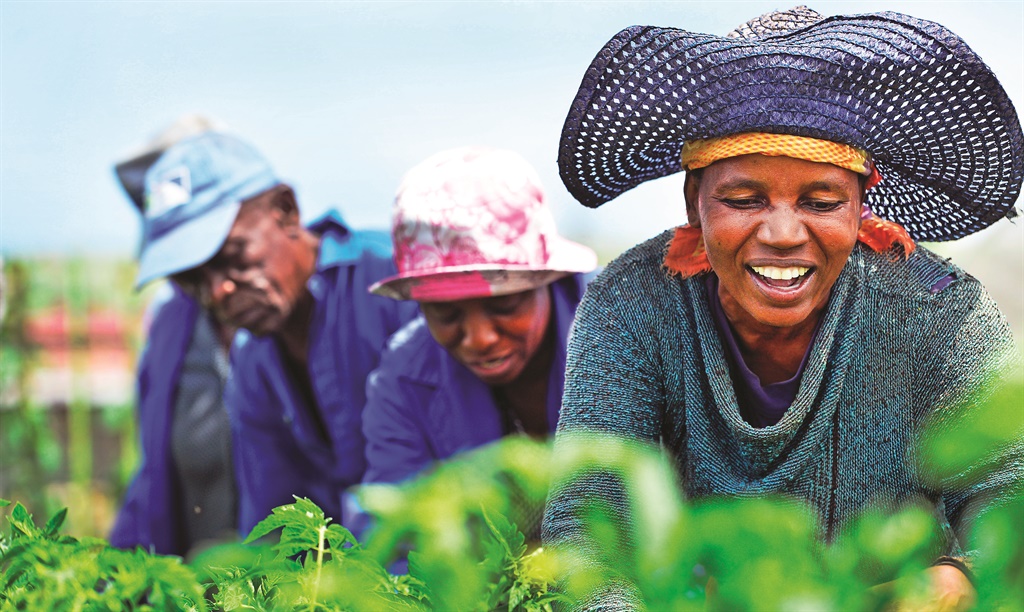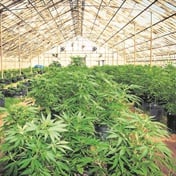
Agricultural economists and analysts say the newly established African Continental Free Trade Area (AfCFTA) will provide agribusinesses in South Africa the opportunity for enhanced trade, cooperation and investment across borders.
The Department of Agriculture, Land Reform and Rural Development (DALRRD) International Trade directorate, Sphamandla Mazibuko said the potential trade opportunities the AfCFTA would bring to the agriculture sector included expanding South Africa’s agricultural exports away from the SADC concentration and into the rest of the continent.
He was speaking at the Agri SA webinar on Positioning South Africa Agriculture in the African Continental Free Trade Area last week.
Wandile Sihlobo, Chief Economist for the Agricultural Business Chamber of South Africa, who facilitated the webinar said the African market is vital for agricultural trade. He said the African market is also the main driver of growth and opportunities for South Africa’s agricultural products.
“For some years South Africa’s government and the business community have recognised the strategic importance of the African market for increased agricultural investment and exports. After all, the African continent accounts for 41% of South Africa’s agricultural exports of an average R131-billion a year,” said Sihlobo.
READ: Africa needs to plough cash into agriculture
January 1 marked the historic and much-anticipated start of trading under the newly established AfCFTA. This trade agreement, signed by 54 of the 55 African Union member states, aims to deepen market integration on the continent, boost intra-African trade and promote regional value chains toward economic transformation through industrialisation.
According to the World Bank, agriculture is central to Africa’s development agenda and has the potential to contribute positively to the realisation of the Sustainable Development Goals more especially those aimed at ending poverty, hunger and starvation.
The World Bank states that agriculture contributes 15% to GDP in sub-Saharan Africa and creates employment for more than 50% of the labour force and is a mainstay of around 33 million smallholder farms.
“Moreover, agriculture’s role in facilitating broader economic development in other sectors of the economy has been confirmed for many decades,” says the World Bank.
READ: Digital Earth Africa can boost continental agriculture and strengthen fiscal revenues
Research shows that increased market access to countries like Nigeria and Senegal present enormous opportunities for South Africa to grow apple exports in the next decade. These countries are also relatively easily accessible through seaports, as some of these products from across the whole country are shipped from Cape Town.
According to the International Trade Centre (ITC), the total value of agricultural imports into Africa from the world has grown from R167-billion in 2001 to more than R1.1-trillion in 2019, representing an average annual growth of 12%.
The organisation states that South African agricultural exports to Africa have outperformed this growth, increasing from R4.8-billion to R52.7-billion over the same period – an average growth of 14.7% per annum.
South Africa’s major exports to African countries were beverages at 15% which were mostly water, wine and beer. These are followed by food preparations at 9%, cereals at 9%, and fruit and nuts at 7%.
The ITC also states that South Africa is also a major supplier of sugar, dairy and animal feed.
According to the Western Cape Department of Agriculture, the AfCFTA is also good for the South African agricultural sector in that it aims to remove tariffs on 90% of all goods traded between member states. This is to happen in equal annual reductions toward a zero tariff.
Tshepo Morokong, Agricultural Economist at the Western Cape Department of Agriculture said the AfCFTA presents the South African agricultural and agri-processing sectors with access to previously inaccessible markets and improved ease of access to existing markets.
Morokong said it will be up to the private sector to utilise this opportunity through building partnerships and increasing investment in regional value chains to facilitate value creation on the continent.
He said for governments, the next step is to complement private-sector efforts through investments in network infrastructure, while also addressing non-tariff barriers such as border-post inefficiencies, high transactional costs, corruption and administrative burdens.
“Africa is by far the most crucial market for exports from South Africa, making up around 40% of the total. However, at the moment there is not much difference between the tariff levels faced by us and our competitors. But this [the tariff level faced by South African exporters] is set to start declining soon as a result of the continental free trade agreement,” said Morokong.
Adding that: “For example, for Zambia – a least developed country – where a 25% customs tariff is applicable on orange imports into the country, the tariff will be reduced by 2.5% per annum, starting in 2021. A South African orange exporter to Zambia will experience a steadily declining tariff, reaching 0% in 2030.
Morokong said in terms of value, fresh oranges in general constitute the largest share agricultural export of the South African farming sector – “but only 2.4% is destined for African markets”.
Although South Africa is still the largest exporter of oranges to Africa, the country competes with Spain and Egypt, among others.
“They face an average tariff of 4.7% to enter African markets, which is much lower than the 11% currently faced by South Africa – but now set to decline due to the AfCFTA,” said Morokong.
He added that as tariffs are removed towards 2030, markets such as Kenya, Angola and Rwanda present significant opportunities for South Africa.
| ||||||||||||||||||||||||||||||
 |




 Publications
Publications
 Partners
Partners










